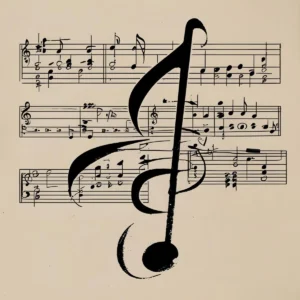The Art of Similes in Expressing Sadness 🖌️
Similes are like lanterns in the dark, using “like” or “as” to illuminate emotions with vivid comparisons. They transform raw feelings into relatable images, making writing and speech more poignant. Instead of saying, “He felt sad,” try “He was sad like a rain-soaked sparrow, shivering in silence.”
Similes give depth to sorrow, helping us connect with others or process our own emotions. Whether in poetry, journaling, or heartfelt conversations, these comparisons make sadness tangible and expressive. Ever felt a simile capture your mood perfectly?
Let’s explore 25 similes for being sad, organized by theme, to enrich your emotional storytelling. 🌧️
Similes for Being Sad: 25 Poignant Comparisons
These 25 similes capture the many shades of sadness—quiet grief, heavy heartache, or fleeting melancholy. Grouped thematically, each includes a meaning, a contextual example, and a specific application for writing, speaking, or reflection. Let’s dive into the tender art of expressing sorrow.
Quiet, Personal Sadness 🤍
Similes for introspective or subtle feelings of sorrow.
- Sadness sits like a stone, heavy in the chest.
Meaning: Sadness feels like a weight, grounding you in quiet pain.
Example: In a journal entry, “Her sadness sat like a stone, heavy in her chest as she stared at the empty chair.”
Application: Use in personal essays or diary entries to describe private grief, e.g., “My sadness, a stone, weighs on me tonight.” - Sadness drifts like fog, blurring the world’s edges.
Meaning: Sadness clouds perception gently, like fog softens a landscape.
Example: In a poem, “His sadness drifted like fog, blurring the laughter around him.”
Application: Perfect for reflective poetry or a blog about feeling lost in sorrow. - Sadness lingers like a shadow, trailing every step.
Meaning: Sadness follows closely, like a shadow that never leaves.
Example: In a short story, “Her sadness lingered like a shadow, trailing her through the bustling market.”
Application: Use in character-driven narratives or a letter to express persistent grief. - Sadness wilts like a flower, fading in silence.
Meaning: Sadness causes a quiet decline, like a flower drooping without water.
Example: In a memoir, “His heart wilted like a flower, fading after the news.”
Application: Great for nostalgic writing or a condolence note to convey gentle sorrow. - Sadness pools like rain, gathering in silent moments.
Meaning: Sadness collects slowly, like rainwater in a hollow.
Example: In a quiet scene, “Her sadness pooled like rain, gathering as she sat alone.”
Application: Use in introspective stories or a journal to describe accumulating emotions.
Heavy, Overwhelming Sadness 💔
Similes for intense or crushing sorrow.
- Sadness crashes like waves, overwhelming the heart.
Meaning: Sadness hits with relentless force, like waves battering a shore.
Example: In a novel, “His sadness crashed like waves, drowning him after the loss.”
Application: Use in dramatic stories or a speech about grief, e.g., “My sadness crashes like waves today.” - Sadness weighs like an anchor, pulling the spirit down.
Meaning: Sadness drags you under, like an anchor sinking a ship.
Example: In a therapy session, “Her sadness weighed like an anchor, keeping her from smiling.”
Application: Perfect for mental health blogs or a conversation about feeling stuck. - Sadness burns like embers, smoldering in the soul.
Meaning: Sadness glows with quiet intensity, like embers that never fully fade.
Example: In a poem, “His sadness burned like embers, glowing through sleepless nights.”
Application: Use in lyrical writing or a support group talk to describe lingering pain. - Sadness chokes like vines, tangling every thought.
Meaning: Sadness entwines and restricts, like vines strangling a tree.
Example: In a character sketch, “Her sadness choked like vines, tangling her plans for the day.”
Application: Great for fiction or a journal entry about feeling overwhelmed. - Sadness drowns like a flood, submerging all joy.
Meaning: Sadness engulfs completely, like a flood overtaking land.
Example: In a eulogy, “His sadness drowned like a flood, washing away his laughter.”
Application: Use in memorial writing or a speech about profound loss.
Sadness in Social Moments 😢
Similes for sadness felt in interactions or public settings.
- Sadness hangs like a veil, dimming the crowd’s cheer.
Meaning: Sadness softens external joy, like a veil obscures a face.
Example: In a party scene, “Her sadness hung like a veil, dimming the music’s spark.”
Application: Use in stories about social isolation or a text, e.g., “Sadness hangs like a veil at this party.” - Sadness whispers like a ghost, haunting every smile.
Meaning: Sadness lingers subtly, like a ghost in the background.
Example: In a friendship scene, “His sadness whispered like a ghost, shadowing their laughter.”
Application: Perfect for dialogue-heavy stories or a social media post about hidden feelings. - Sadness clings like damp cloth, sticking to the skin.
Meaning: Sadness feels inescapable, like wet fabric clinging uncomfortably.
Example: In a school scene, “Her sadness clung like damp cloth, heavy during the pep rally.”
Application: Use in teen fiction or a caption about feeling out of place. - Sadness fades like music, slipping from a crowded room.
Meaning: Sadness retreats quietly, like music fading in a noisy space.
Example: In a family gathering, “His sadness faded like music, lost in the relatives’ chatter.”
Application: Great for stories about masking emotions or a journal about social events. - Sadness hovers like a cloud, casting gloom over laughter.
Meaning: Sadness looms subtly, like a cloud dimming sunlight.
Example: In a coffee shop scene, “Her sadness hovered like a cloud, dulling her friends’ jokes.”
Application: Use in casual writing or a tweet about feeling low in a group.
Sadness as Fleeting Moments 🌫️
Similes for brief or passing waves of sorrow.
- Sadness flits like a moth, brushing against the heart.
Meaning: Sadness touches lightly and briefly, like a moth’s fleeting wings.
Example: In a reflective essay, “Her sadness flitted like a moth, brushing her heart as she passed his old house.”
Application: Use in personal essays or a note about fleeting memories. - Sadness ripples like a pebble’s wake, fading in time.
Meaning: Sadness spreads briefly, like ripples from a stone in water.
Example: In a poem, “His sadness rippled like a pebble’s wake, stirred by her goodbye.”
Application: Perfect for lyrical writing or a letter about moving on. - Sadness drifts like a leaf, falling gently to the ground.
Meaning: Sadness descends softly, like a leaf floating down.
Example: In a nature scene, “Her sadness drifted like a leaf, settling as she watched the sunset.”
Application: Use in reflective stories or a journal about quiet moments. - Sadness sparks like a match, brief but sharp.
Meaning: Sadness strikes quickly and intensely, like a match flaring.
Example: In a dialogue, “His sadness sparked like a match when she mentioned their old song.”
Application: Great for emotional scenes or a text about sudden memories. - Sadness glimmers like dew, fleeting on the morning’s edge.
Meaning: Sadness shines briefly, like dew before it evaporates.
Example: In a morning scene, “Her sadness glimmered like dew, gone by breakfast.”
Application: Use in short stories or a caption about passing emotions.
Sadness with Cultural Depth 🌍
Similes inspired by cultural or symbolic imagery.
- Sadness weaves like a requiem, mourning in silent notes.
Meaning: Sadness carries a solemn melody, like a requiem for the departed.
Example: In a historical novel, “His sadness wove like a requiem, echoing the village’s loss.”
Application: Use in cultural stories or a speech about collective grief. - Sadness rests like a shrine, sacred in its stillness.
Meaning: Sadness holds a quiet reverence, like a shrine for reflection.
Example: In a cultural memoir, “Her sadness rested like a shrine, honoring her ancestors’ struggles.”
Application: Perfect for heritage writing or a tribute to shared sorrow. - Sadness flows like a river, carving paths through time.
Meaning: Sadness moves steadily, shaping the soul like a river shapes land.
Example: In a family saga, “His sadness flowed like a river, etching memories of their feud.”
Application: Use in generational stories or a blog about enduring emotions. - Sadness mourns like a bell, tolling in the heart.
Meaning: Sadness resonates deeply, like a bell’s somber chime.
Example: In a poem, “Her sadness mourned like a bell, tolling with each lost dream.”
Application: Great for lyrical writing or a speech about loss. - Sadness is a tapestry, weaving grief into beauty.
Meaning: Sadness blends pain into meaningful patterns, like a tapestry tells a story.
Example: In an art essay, “His sadness was a tapestry, weaving loss into a poignant song.”
Application: Use in creative writing or a reflection on finding meaning in sorrow.
Creative Examples to Stir the Heart 🥀
These similes paint sadness in vivid hues. “Sadness crashes like waves” captures the overwhelming force of grief, perfect for a dramatic novel. “Sadness flits like a moth” evokes fleeting melancholy, ideal for a tender poem. Ever felt sadness “linger like a shadow”? Try it in a journal entry about a tough day. Which simile mirrors your own quiet moments—do you carry a “stone” or drift in “fog”?
Try This: Choose a simile and write a sentence about a recent sad moment, like “My sadness pooled like rain when I missed her call.” Share it in a journal or with a trusted friend.
Practical Applications for Every Voice ✍️
These similes can deepen your expression:
- Poetry: Use “sadness drifts like fog” to craft evocative lines, e.g., in a poem about loneliness.
- Stories: Add “sadness weighs like an anchor” to a character’s arc, showing their emotional struggle.
- Speeches: Say “Our sadness rests like a shrine” in a memorial talk to honor shared grief.
- Journaling: Write “Sadness flits like a moth” in a diary to process fleeting emotions.
- Social Media: Post “Feeling like a rain-soaked sparrow today 😔” to share a mood with empathy.
Challenge: Rewrite a plain sentence like “I felt sad” with a simile, e.g., “My heart wilted like a flower.” Notice how it transforms your words!
Conclusion: Let Sadness Sing Through Similes 🌟
Similes turn sadness into art, from “stones” weighing the heart to “tapestries” weaving meaning. They help you share, process, or honor sorrow in stories, poems, or quiet chats. Why not try one today? Craft a simile for a moment of sadness—maybe “My heart is a lantern, dimmed by rain.” Share it in a note, a post, or a talk with a friend. Sadness is part of the human story, and similes are your brush to paint it beautifully. Keep creating, keep feeling, and let your words shine! 🕊️



